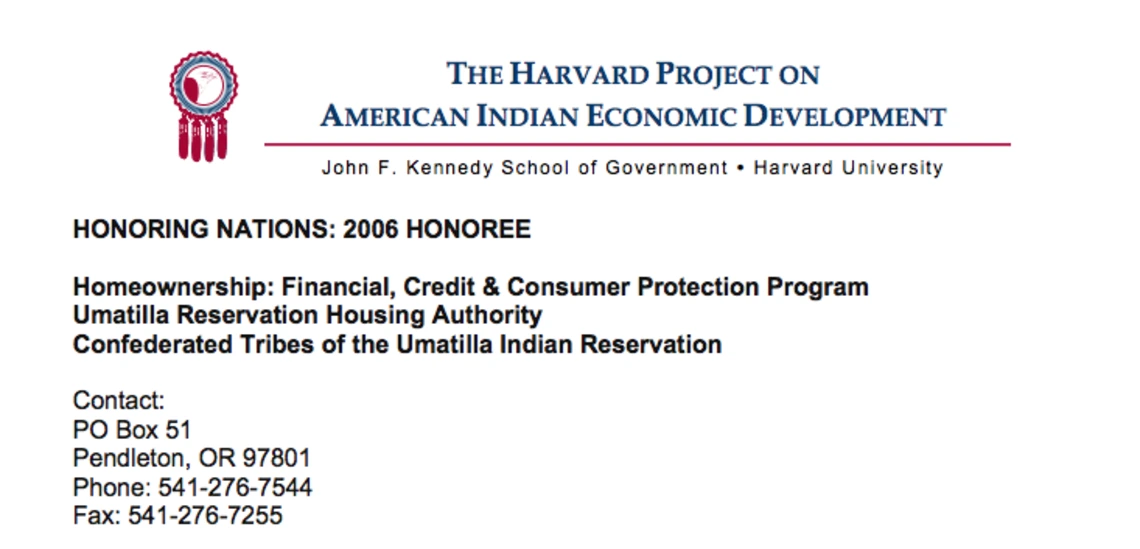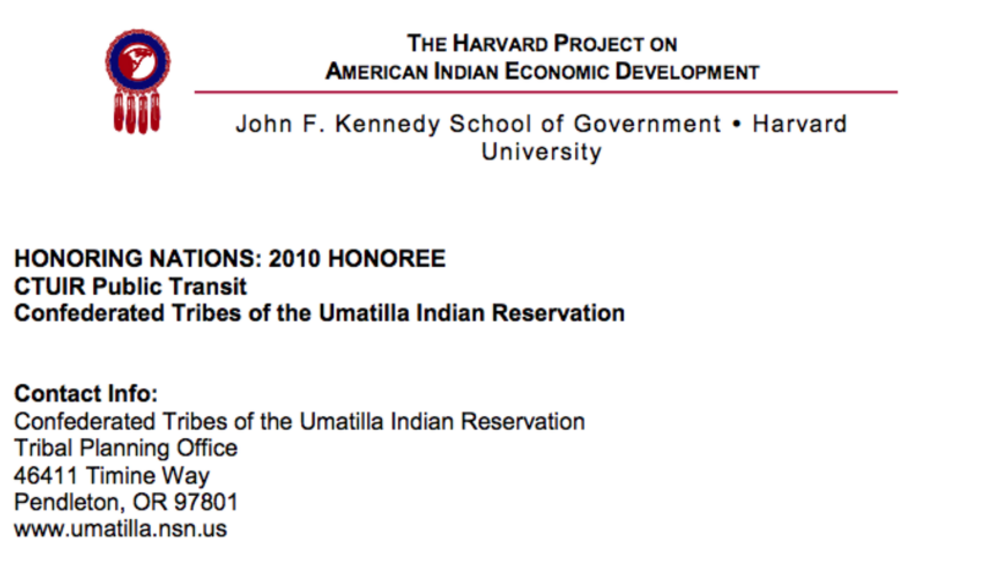Recognizing the necessary links between promoting a strong economy, maintaining positive cultural connections, and the ability to own a home, the Umatilla Housing Authority promotes the "Wapayatat" Homeownership: Financial, Credit and Consumer Protection Program. The seven-week course provides asset building and saving strategies, while generating awareness about predatory lending practices. The program also assists citizens in developing financial literacy skills using culturally appropriate curriculum, bringing the dream of homeownership closer to reality for their people. As citizens build and own homes on tribal land, the community and the Tribes are strengthened.
Additional Information
"Homeownership: Financial, Credit and Consumer Protection Program". Honoring Nations: 2006 Honoree. The Harvard Project on American Indian Economic Development, John F. Kennedy School of Government, Harvard University. Cambridge, Massachusetts. 2007. Report.



